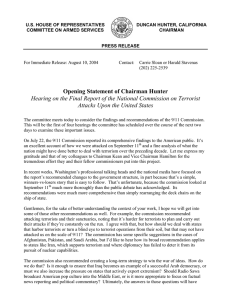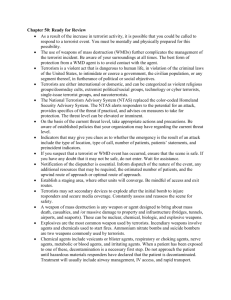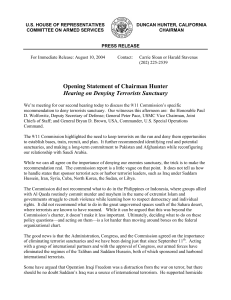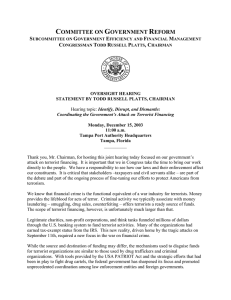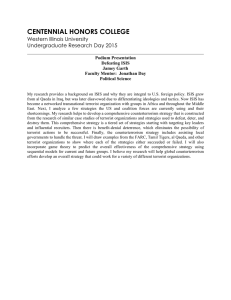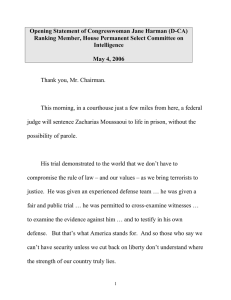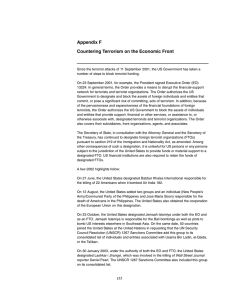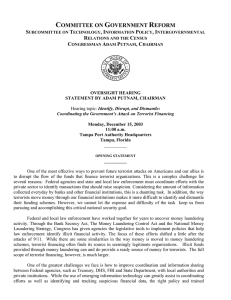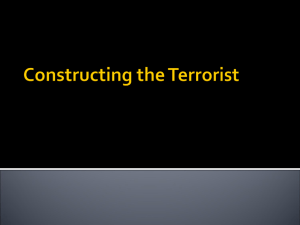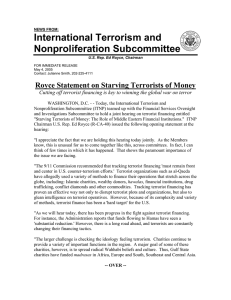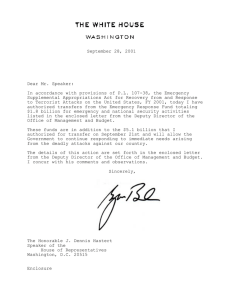Senate Committee on Foreign Relations Senator Richard Lugar
advertisement
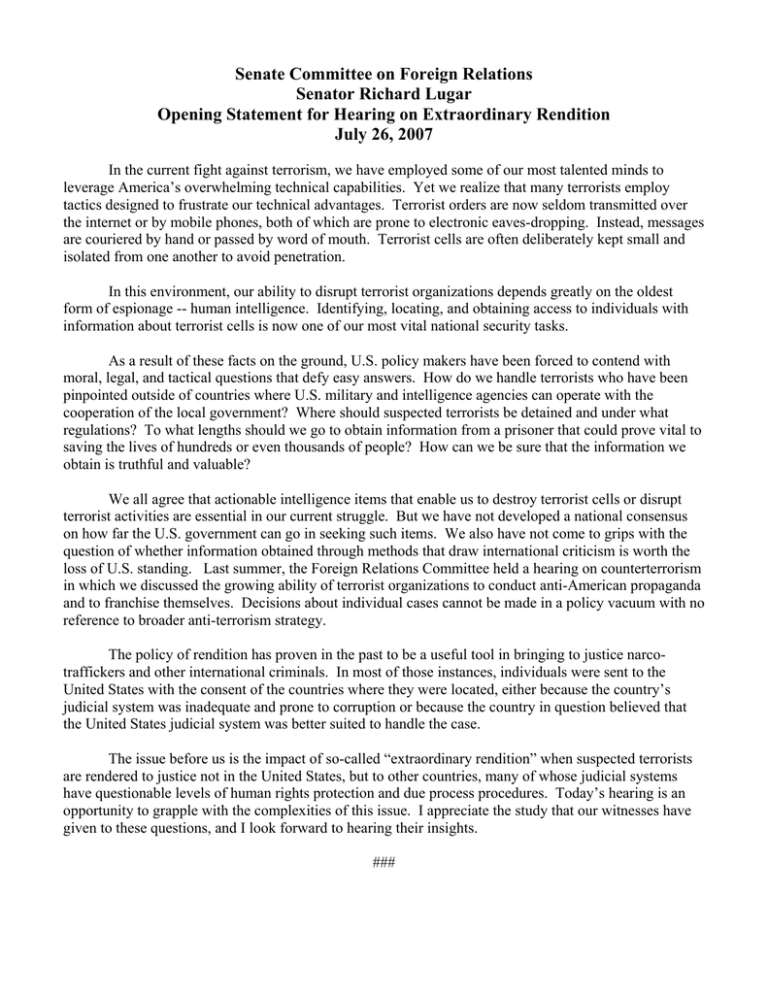
Senate Committee on Foreign Relations Senator Richard Lugar Opening Statement for Hearing on Extraordinary Rendition July 26, 2007 In the current fight against terrorism, we have employed some of our most talented minds to leverage America’s overwhelming technical capabilities. Yet we realize that many terrorists employ tactics designed to frustrate our technical advantages. Terrorist orders are now seldom transmitted over the internet or by mobile phones, both of which are prone to electronic eaves-dropping. Instead, messages are couriered by hand or passed by word of mouth. Terrorist cells are often deliberately kept small and isolated from one another to avoid penetration. In this environment, our ability to disrupt terrorist organizations depends greatly on the oldest form of espionage -- human intelligence. Identifying, locating, and obtaining access to individuals with information about terrorist cells is now one of our most vital national security tasks. As a result of these facts on the ground, U.S. policy makers have been forced to contend with moral, legal, and tactical questions that defy easy answers. How do we handle terrorists who have been pinpointed outside of countries where U.S. military and intelligence agencies can operate with the cooperation of the local government? Where should suspected terrorists be detained and under what regulations? To what lengths should we go to obtain information from a prisoner that could prove vital to saving the lives of hundreds or even thousands of people? How can we be sure that the information we obtain is truthful and valuable? We all agree that actionable intelligence items that enable us to destroy terrorist cells or disrupt terrorist activities are essential in our current struggle. But we have not developed a national consensus on how far the U.S. government can go in seeking such items. We also have not come to grips with the question of whether information obtained through methods that draw international criticism is worth the loss of U.S. standing. Last summer, the Foreign Relations Committee held a hearing on counterterrorism in which we discussed the growing ability of terrorist organizations to conduct anti-American propaganda and to franchise themselves. Decisions about individual cases cannot be made in a policy vacuum with no reference to broader anti-terrorism strategy. The policy of rendition has proven in the past to be a useful tool in bringing to justice narcotraffickers and other international criminals. In most of those instances, individuals were sent to the United States with the consent of the countries where they were located, either because the country’s judicial system was inadequate and prone to corruption or because the country in question believed that the United States judicial system was better suited to handle the case. The issue before us is the impact of so-called “extraordinary rendition” when suspected terrorists are rendered to justice not in the United States, but to other countries, many of whose judicial systems have questionable levels of human rights protection and due process procedures. Today’s hearing is an opportunity to grapple with the complexities of this issue. I appreciate the study that our witnesses have given to these questions, and I look forward to hearing their insights. ###
